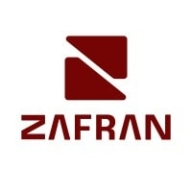


SentinelOne Singularity Cloud Security and SentinelOne Singularity Identity compete in cybersecurity solutions. Singularity Cloud Security appears stronger due to better threat detection and third-party integration.
Features: Singularity Cloud Security provides notable threat detection, automated remediation, and strong historical data analysis for early threat identification. It also supports integration with third-party applications and offers deep forensic visibility. Singularity Identity emphasizes behavior-based detection and offers comprehensive device visibility, boasting a lightweight agent and robust customer service.
Room for Improvement: Singularity Cloud Security could reduce its false positive rate and its resource-heavy nature which affects process efficacy. Further third-party integrations and user interface enhancements are also needed. Singularity Identity faces challenges with its pricing model and reports of less comprehensive ROI. Users also criticize alert accuracy and request improved support services alongside faster updates.
Ease of Deployment and Customer Service: Both products are available on various cloud platforms, allowing flexible deployment. Singularity Cloud Security receives positive feedback for its technical support responsiveness, while Singularity Identity gets mixed reviews, with some users dissatisfied with support speed and resolution times.
Pricing and ROI: Singularity Cloud Security is viewed as competitively priced with good value, particularly for its threat detection abilities and integration. This is linked to ROI improvements. Singularity Identity, despite extensive functionalities, is criticized for higher costs, suggesting that a more transparent and slightly lowered price might enhance its appeal.



Zafran Security integrates with existing security tools to identify and mitigate vulnerabilities effectively, proving that most critical vulnerabilities are not exploitable, optimizing threat management.
Zafran Security introduces an innovative operating model for managing security threats and vulnerabilities. By leveraging the threat exposure management platform, it pinpoints and prioritizes exploitable vulnerabilities, reducing risk through immediate remediation. This platform enhances your hybrid cloud security by normalizing vulnerability signals and integrating specific IT context data, such as CVE runtime presence and internet asset reachability, into its analysis. No longer reliant on patch windows, Zafran Security allows you to manage risks actively.
What are the key features of Zafran Security?
What benefits can users expect from Zafran Security?
In industries where security is paramount, such as finance and healthcare, Zafran Security provides invaluable protection by ensuring that only exploitable vulnerabilities are addressed. It allows entities to maintain robust security measures while allocating resources efficiently, fitting seamlessly into existing security strategies.
SentinelOne Singularity Cloud Security protects cloud workloads, offering advanced threat detection and automated response. It integrates seamlessly with cloud environments and secures containerized applications and virtual machines against vulnerabilities.
SentinelOne Singularity Cloud Security is renowned for its efficiency in mitigating threats in real-time. The platform integrates effortlessly with existing cloud environments, ensuring robust cloud security management with minimal manual intervention. Securing containerized applications and virtual machines, it excels in threat intelligence and endpoint protection. However, improvements are needed in performance during high workload periods, and more integrations with third-party tools and better documentation would be beneficial. Users often find the installation process complex, support response times slow, and the dashboard's navigation unintuitive.
What are the key features of SentinelOne Singularity Cloud Security?In specific industries, SentinelOne Singularity Cloud Security is implemented to safeguard critical data and infrastructure. Organizations in finance, healthcare, and technology depend on its real-time threat detection and automated response to protect sensitive information. Its ability to secure containerized applications and virtual machines is particularly valuable in dynamic environments where rapid scaling is necessary.
Singularity Identity, a component of the Singularity platform, provides threat detection & response (ITDR) capabilities to defend Active Directory and domain-joined endpoints in real-time from adversaries aiming to gain persistent, elevated privilege and move covertly. Singularity Identity provides actionable, high-fidelity insight as attacks emerge from managed and unmanaged devices. It detects identity misuse and reconnaissance activity happening within endpoint processes targeting critical domain servers, service accounts, local credentials, local data, network data, and cloud data. On-agent cloaking and deception techniques slow the adversary down while providing situational awareness and halting adversarial attempts at lateral movement. Singularity Identity helps you detect and respond to identity-based attacks, providing early warning while misdirecting them away from production assets.
Singularity Identity’s primary use case is to protect credential data and disrupt identity-based attacks. The most valuable function of Singularity Identity is its ability to misdirect attackers by providing deceptive data to identity-based recon attacks. Additionally, it can hide and deny access to locally stored credentials or identity data on Active Directory domain controllers.
Singularity Identity also provides rapid detection and respond to identity attacks, capturing attack activity and feeding it directly to the Singularity platform’s Security DataLake for enterprise-wide analysis and response.
By implementing Singularity Identity, organizations benefit from enhanced security, reduced credential-related risks, and improved user productivity. It detects and responds to identity-based attacks, ensuring only authorized individuals can access critical identity data. With its cloaking capabilities to hide identity stored locally on endpoints or in the identity infrastructure and it’s ability to provide decoy results to identity-based attacks, organizations can effectively secure their sensitive or privileged identities, resulting in improved overall identity security.
We monitor all Vulnerability Management reviews to prevent fraudulent reviews and keep review quality high. We do not post reviews by company employees or direct competitors. We validate each review for authenticity via cross-reference with LinkedIn, and personal follow-up with the reviewer when necessary.